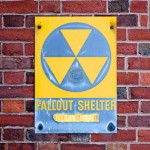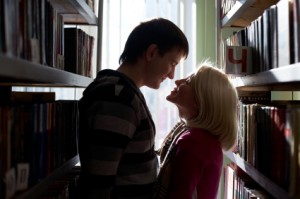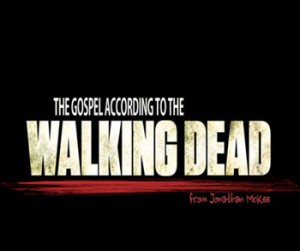I’ve authored or coauthored five books about World War II, and one consistently repeated comment that comes my way from reader feedback sounds something like this:
· “Great book. Every young person in America should read this.”
· “I read this book, then bought a copy for my son.” (or grandson, or nephew)
· “Fantastic book—but who is telling the next generation about the price of freedom?”
I’ve talked with other WWII authors, and the same sort of feedback comes their way. Readers desperately want the next generation to know about WWII.
WHY?
Why do we value the experience of reading about WWII so much that we want the next generation to know about it so badly? How would you articulate that desire to pass on what you have learned about this important subject?
I’ve found that when young people read about WWII, three positive results are produced:
1. Their problems are put into perspective.
Before I became an author, I worked in youth ministry for nearly a decade. A lot of youth ministry is crisis management. Young people experience life’s difficulties, and those difficulties run the gamut of everything from not being able to get a date for prom, to having drugs being offered them in the high school locker room.
All problems seem valid and can seem usually huge to a young person, even though a problem might seem inconsequential to a grown up. So learning about WWII offers a graphic way to help a young person put problems in perspective, particularly when a problem doesn’t seem earth-shaking to a grownup.
Yes, it is disappointing if The Gap is out of your size in yellow sweaters, but no, it’s not as catastrophic a problem as, say, parachuting into Normandy in the dark of night while seeing the tracer bullets of enemy soldiers come straight toward you.
Studying WWII helps teach young people that (almost always) their life experiences could be far harder than they are right now. This knowledge helps break the feelings of entitlement that often accompany these years.
No, you are not entitled to receive a car for your 16th birthday. I know it’s not fun to take the school bus for another two years, but it’s not the end of the world either. At least you’re not fighting on Iwo Jima.
When young people read books about WWII, grownups are actually less likely to say phrases like the ones above, truthful as those phrases may be. Young people can sense the perspective for themselves, which is more powerful.
2. They develop gratefulness.
Here’s truth: years ago someone gave much so that you could enjoy the life you live today.
If it wasn’t for young Allied soldiers such as Skip Muck and Alex Penkala getting blown apart in a foxhole in the battle of Bastogne, then right now—right at this moment—your life would be decidedly different.
· Perhaps you couldn’t choose which university you want to attend, or choose the career you want to pursue. The State would decide that for you.
· You probably couldn’t travel around the country freely, and it would be much harder, maybe impossible, if you wanted to travel abroad.
· Undoubtedly you wouldn’t be able to worship freely. You might be able to worship at a State-sanctioned church, but the experience would be controlled and observed by State officials.
· Probably someone you care for deeply would be rotting in jail because he spoke up against the government or was deemed undesirable, a dissident, or a threat to the State.
When young people read books about WWII, they see that many people fought and died for their freedom in years past, so they develop a new sense of gratefulness.
They want to know who to thank.
3. They want to do something that matters.
When young people see that freedom isn’t free, this prompts them to do better things with their lives.
The freedom that was fought and died for in WWII wasn’t freedom to do anything you want whenever you want. It was a freedom from oppression.
Since young people are not under a yoke of tyranny today, they are free to make something significant of their years.
Here’s truth—if you live in a free country today, then pretty much without exception you can build any sort of life that you want. You can waste your life, or you can do something purposeful.
Knowing that the freedom to do that was paid for in blood helps young people make wiser choices.
But is it safe?
Certainly there’s an age-appropriateness factor regarding youths reading books about WWII. For instance, I might not hand my 10-year-old daughter the same books that I’d pass on to my 14-year-old nephew. A good rule of thumb is to preview any book before you pass it along.
Yet I’d say the next generation is better able to handle the complexities of reading books about war than we give them credit for. My daughter already knows who Adolf Hitler was, some of the horrible things he stood for, and some of the reprehensible things he did during the Holocaust. As difficult as it is for a parent to have his fifth grader learn these things, overall I’d say it’s beneficial.
Why?
Because those who ignore history are doomed to repeat it.
Looking for a good WWII book for a young person? Start with …
The authorized biography of Sgt. Darrell “Shifty” Powers, the legendary sharpshooter from the Band of Brothers












